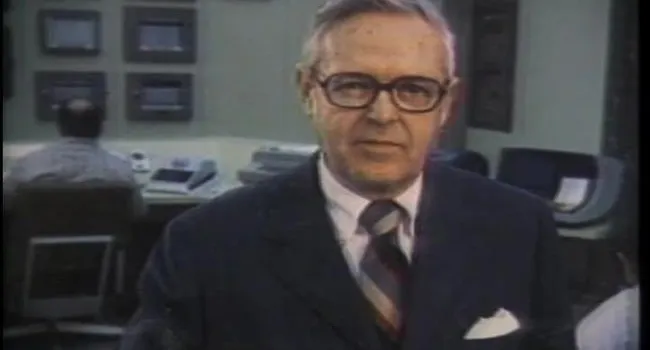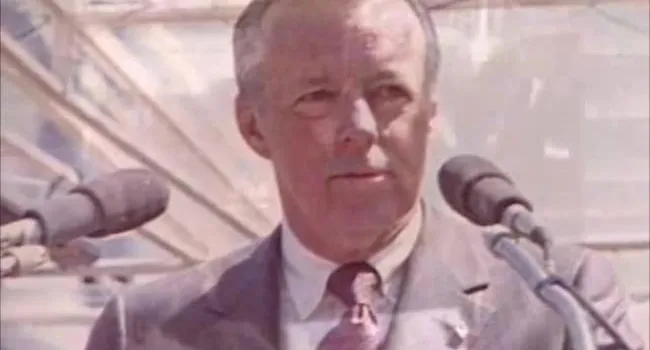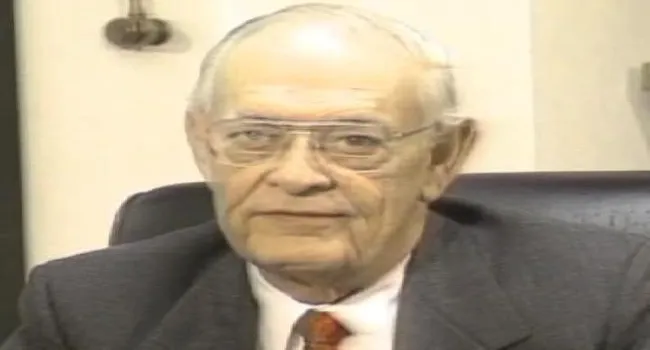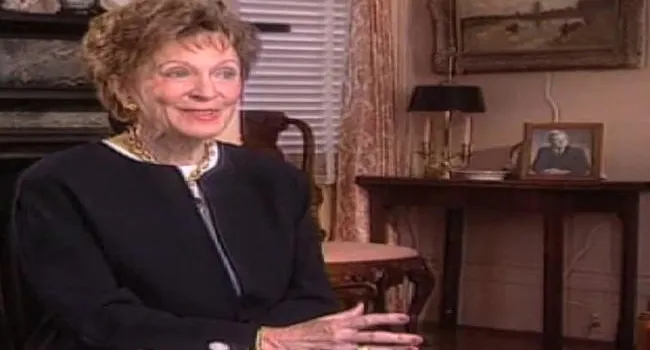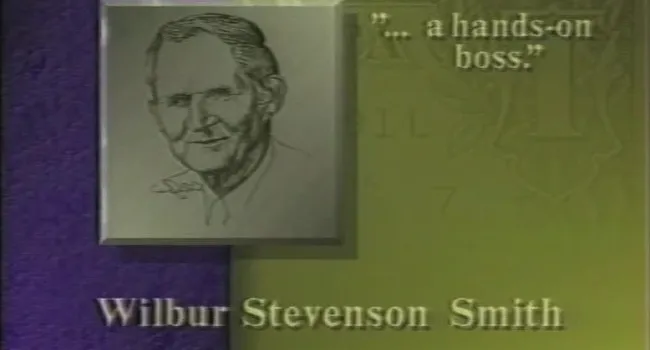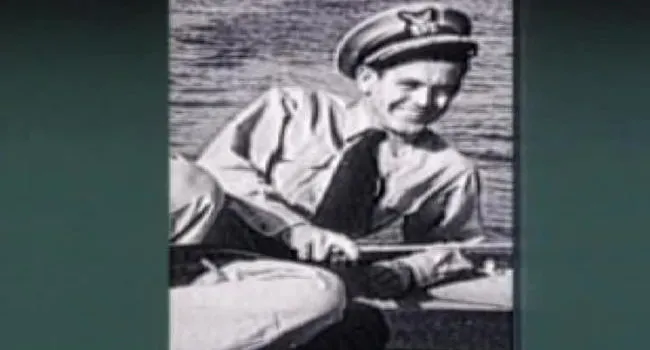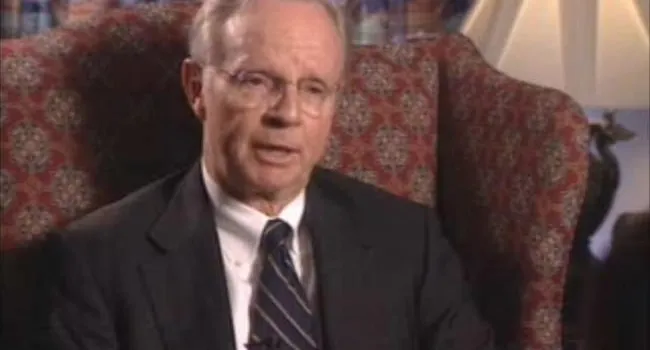An interview with Jasper Salmond on Wilbur S. Smith.
Wilbur S. Smith (1911–1990)
Wilbur Smith's name is probably known in more places around the world today than any other South Carolinian's.
The traffic consulting firm he founded in 1952, Wilbur Smith and Associates, eventually had clients on six of the seven continents—all but Antarctica and in 60 countries.
Wilbur Stevenson Smith was born in Columbia on September 6, 1911, the first of four sons of George and Rebecca Stevenson Smith. He finished Columbia High School in 1928 and graduated magna cum laude from the University of South Carolina in 1932 with an electrical engineering degree. He earned a master's degree in 1933.
There were no engineering jobs in Columbia in that Depression year, and the Phi Beta Kappa graduate went to work for the South Carolina Department of Highways stamping metal driver's license tags. Now, more than 66 years later, the Smith firm is a consultant for the historic English Channel tunnel linking Great Britain and the Continent.
Smith's accomplishments as an engineer and businessman over those decades represent an extraordinary example of one man's determination, hard work, imagination, and leadership. He was intuitive, saw trends, and moved to take advantage of them.
He worked for the highway department for ten years and became the first state traffic engineer. He studied the developing science of traffic engineering at Harvard and Yale, taught and lectured, and in 1952 founded Wilbur Smith and Associates to practice what he preached.
The firm expanded rapidly with the growing interstate system and developed expertise in designing roads, bridges, and parking facilities, and planning shopping centers, resorts, residential complexes, airports, seaports, railroads, waterways, subways, urban redevelopment—almost anything related to transportation.
In 1961, Wilbur Smith and Associates went international, landing a project in Ceylon, associating with a British firm for a traffic study of Greater London, and contracting for a master plan for Calcutta. The firm expanded into Western Europe, Asia, Africa, Australia, New Zealand, and into South America and Central America, and Smith shared his expertise with developing Third World countries.
Smith was a hands-on boss who insisted on thorough research and perfection in planning. At times he reviewed as many as 100 projects and traveled 250,000 miles a year to check on them. Somehow, Smith found time to write and lecture and to participate in and promote engineering organizations around the globe. He was a licensed engineer in each of the 50 states and a member of engineering institutions in the United Kingdom, Greece, Australia, Hong Kong, and New Zealand.
He also was chairman of the Eno Foundation for Transportation, Inc., a consultant to National Aeronautics and Space Administration on commercialization of space, and a member of the advisory board of the Salvation Army of the Midlands.
In 1981, his firm merged with Armco, Inc., of Middletown, Ohio, and in 1983 Smith retired as chairman of the board, a post he had held since 1952. He became a senior consultant to the firm and also continued personal consulting work.
Wilbur Smith was repeatedly saluted by his engineering peers. In 1985, the National Society of Professional Engineers gave him its highest honor, and the same year he received the prestigious George S. Bartlett Award from the Transportation Research Board.
In 1983, the Highway Division of the American Society of Civil Engineers honored him with an annual award that bears his name. In 1982, the Institute of Transportation Engineers gave him its Burton W. Marsh award for distinguished service, and in 1980, he received the Roy W. Crum award from the Transportation Research Board, of which he was a former chairman.
Smith belonged to many professional organizations, among them The National Academy of Engineering, American Consulting Engineers Council, American Society of Civil Engineers, Institute of Transportation Engineers, International Road Federation, American Society of Safety Engineers, Transportation Research Board, and the National, New York, and South Carolina Societies of Professional Engineers. He was also a fellow of the Institute of Civil Engineers, United Kingdom.
Smith was a member of the boards of Rank Development Corporation and Rank Arrowhead Hotel Corporation, Koger Properties, Riverland Development Corporation, Corporate Concepts, First Sun Corporation, and Republic National Bank. He was also chairman of the board of the Eno Foundation for Transportation, Inc., a consultant to the Harry Frank Guggenheim Foundation, and a trustee of the South Carolina Research Authority.
He was a longtime supporter of the University of South Carolina, which awarded him an honorary doctorate in 1963. He was an adviser to USC on international business programs and in international studies and was a member of the USC president's National Advisory Council.
USC gave him its Distinguished Alumni award in 1968 and the Algernon Sydney Sullivan Award for outstanding service in 1978. Lander College awarded him an honorary degree in 1975. He also served as a trustee of Presbyterian College.
Smith was a member of the Dean's Council of the School of Engineering at Duke University and received its distinguished service award in 1982. He also was on the board of overseers of Duke's Comprehensive Cancer Center.
He married Sarah E. Bolick in 1934. They were the parents of three daughters, Peggy Smith, Sally Smith Cahalan, and Stephanie Smith-Philips.
Wilbur Smith died July 25, 1990.
He was inducted into the South Carolina Business Hall of Fame in 1990.
© 1999 South Carolina Business Hall of Fame

